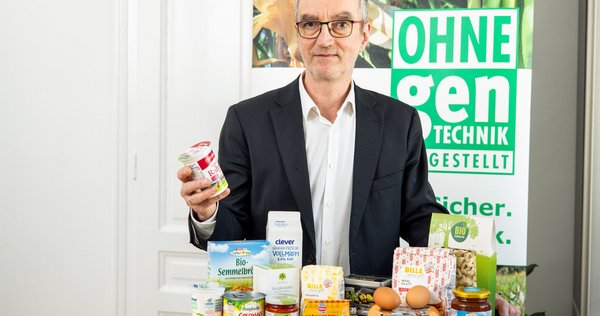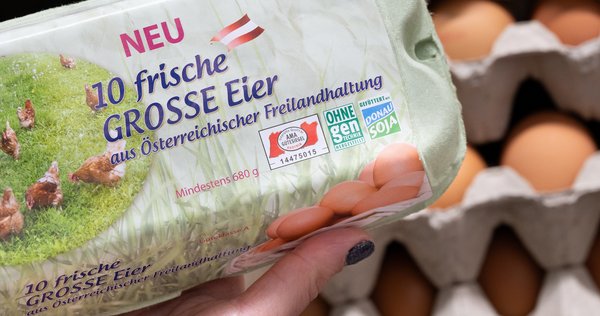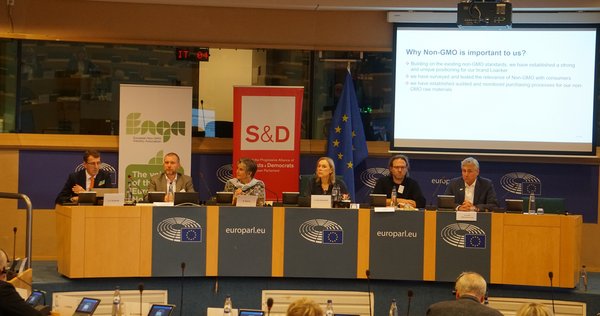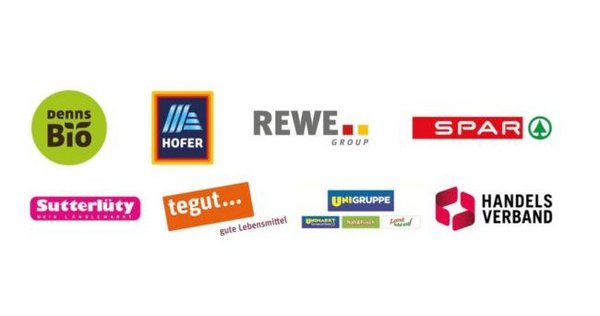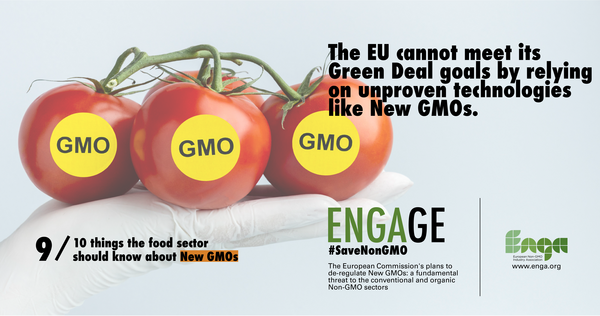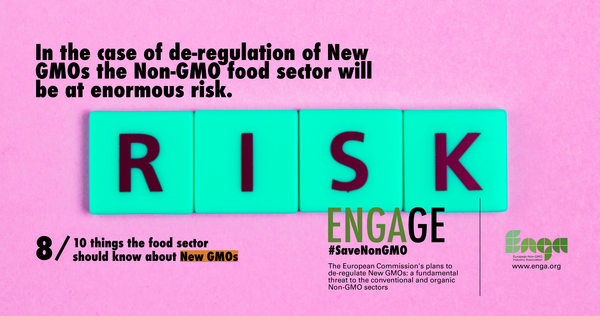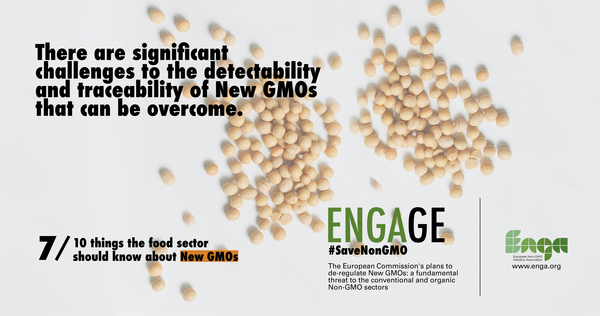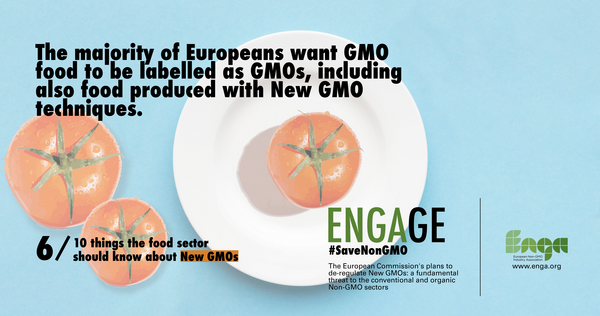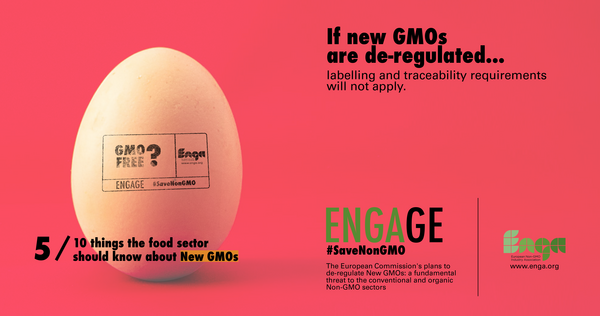
ENGA-GE: For a Strict Regulation of all New GMOs
On the 5th July 2023, the European Commission presented its legislative proposal on “plants obtained by certain new genomic techniques and their food and feed” (otherwise known as New GMOs). Products made by New Genomic Techniques (NGTs) remain GMOs.
The EC’s legislative proposal followed on from an Impact Assessment process, including a stakeholder and public consultation (find out more about the Impact Assessment process – which ENGA along with many other key stakeholders considered to be fundamentally flawed and biased - here and the Summary Report of the Consultation here).
The Commission’s proposal waters down or even abolishes the current safety and transparency standards for NGTs and puts the European Union’s GMO-free agriculture and food production at risk.
Now it is up to member states and the European Parliament to act on behalf of their citizens and the competitive advantage of EU food production and agriculture: the high safety and transparency standards for GMOs.
Trilogue discussions between the three law making institutions of the EU began in May 2025. ENGA has published a background political briefing paper on traceability, labelling and detection methods. You can find it here.
In its landmark judgment in July 2018 the European Court of Justice (ECJ) ruled that new GMOs (produced with techniques like CRISPR/Cas) have to be regulated in the same manner as old GMOs - that is they are subject to the current EU GMO legislation. In accordance with the precautionary principle they must undergo environmental and food safety risk assessments before receiving permission to enter the EU market. Their producers must provide detection methods, economic operators must ensure traceability throughout the entire value chain, and authorities are responsible for effective monitoring methods. GMO labelling is compulsory for genetically engineered feed and food.
The legislative proposal from the European Commission puts the European Union’s GMO-free agriculture and food production at risk.
According to the proposal, for 95% of all NGTs the precautionary principle and any risk assessment will be abolished, traceability and labelling will no longer be applicable, detection methods need not be submitted, coexistence measures for an agriculture and food production with and without genetic engineering need not be supplied.
For 5% of all NGTs, a limited risk assessment must be applied, it is possible to use an additional label to indicate the purpose of the genetic modification and under certain circumstances biotech companies are liberated to deliver detection methods.
Member states are not allowed to ban NGT cultivation on their territory.
The way the proposal is designed, all the advantages are with those who want to use NGTs and all the burden and costs lie with those who do not want use GMOs. It is a proposal made for the biotech seed sector, commodity traders and NGT exporting countries. And it goes against the interests of the EU food sector and EU citizens. The latter would lose their right to know what is in their food, the former would be faced with critical questions and the anger of consumers.
Read more about the Commission’s proposal and what it means here: https://www.enga.org/newsdetails/ngt-deregulation-proposal-gmo-free-food-production-at-risk/
- Take a clear stand with customers and politicians.
- Emphasise the benefits of GMO-free foods: No genetic modification at any stage of the value chain; intensive, regular monitoring and safe, natural products.
- Communicate the economic threat of the EC’s proposal: Without labelling, traceability, detection methods and coexistence measures the Non-GMO sector will be under huge pressure.
- Engage proactively with politicians at EU, national and regional level (letters, lobby talks)
- Use the support of ENGA. ENGA provides extensive information on New Genomic Techniques.
- Call to laboratories - sign open letter to demand access to detection methods, reference material and data on new GMOs.
- Support ENGA.
To find out more about the legislative process and what it means for your business and how you can have your voice heard by policy makers, please get in touch: info@enga.org
Read more:
- New Report shows Market Reality of New GMOs
- New GMOs are promises, not reality. Their benefits are unproven and their risks are still unknown…







